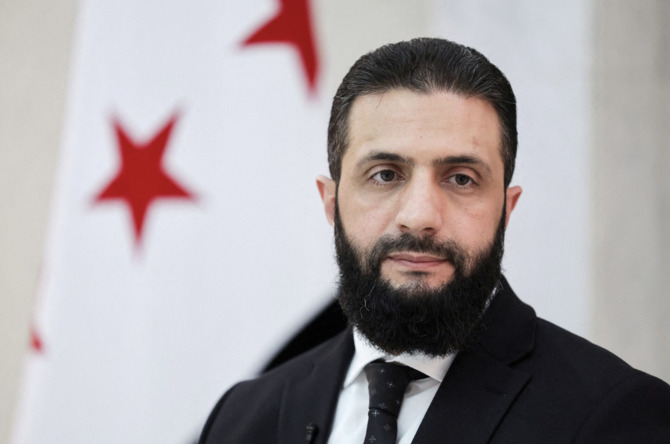Syrian President Ahmed Al-Sharaa to Visit Moscow, Marking New Era of Syrian-Russian Cooperation
Damascus – Syria’s President Ahmed Al-Sharaa will travel to Moscow on Wednesday for an official visit aimed at strengthening political, military, and economic ties between Syria and Russia.
The visit is being viewed as a positive step toward rebuilding strategic cooperation and ensuring regional stability following a period of significant change in Syria’s leadership.
According to government and foreign ministry officials, President Sharaa is expected to meet Russian President Vladimir Putin and hold wide-ranging discussions covering investment, defense, and the future of Russian military bases in Syria.
This marks Sharaa’s first official visit to Russia since assuming the presidency following the December overthrow of former Syrian leader Bashar Assad. The trip highlights a new chapter in Syria-Russia relations—one that focuses on partnership, stability, and reconstruction rather than conflict.
A senior government official told AFP that the visit will include Syria’s foreign minister and a delegation of senior military and economic officials.
“The agenda will cover economic cooperation, investment opportunities, and the reorganization of the Syrian military,” the official said. “President Sharaa’s goal is to reaffirm Syria’s friendship with Russia while also setting the stage for balanced and mutually beneficial relations.”
Another foreign ministry official confirmed that discussions will also focus on the continued presence and modernization of Russia’s naval base in Tartus and its air base in Hmeimim.
Both bases, located on Syria’s Mediterranean coast, have historically been vital components of Moscow’s strategic presence in the Middle East.
The official noted that the talks would aim to “ensure continued cooperation while aligning the military partnership with Syria’s current priorities of peace and reconstruction.”
Russia’s Tartus naval base and Hmeimim air base remain symbols of long-standing Russian-Syrian cooperation.
These facilities were crucial during Russia’s intervention in the Syrian conflict in 2015, but under the new administration, their role is expected to evolve toward supporting regional security, maritime trade, and joint counterterrorism efforts.
Observers see Sharaa’s Moscow visit as an important signal of continuity and pragmatism in Syria’s foreign policy.
While the new Syrian government has sought to reshape its international relationships, it remains committed to maintaining stable and constructive ties with major global powers, especially Russia.
This diplomatic approach reflects Syria’s renewed focus on sovereignty, stability, and rebuilding after years of turmoil.
The visit also comes at a time when both nations are exploring opportunities for enhanced economic cooperation. With Syria entering a phase of reconstruction and economic revival, Russia is expected to play a key role in supporting infrastructure projects, energy development, and industrial investments.
“Russia has been a consistent partner, and our goal is to expand that partnership in new areas of growth and innovation,” said an economic official familiar with the discussions.
Although President Sharaa was initially scheduled to attend a Russian-Arab summit this week, the meeting was postponed as several Arab leaders were engaged in overseeing the implementation of the United States’ Gaza ceasefire plan.
Nonetheless, Syrian officials emphasized that bilateral talks between Syria and Russia will proceed as planned, underscoring the strength and importance of the two countries’ relationship.
Syria’s new leadership has shown a clear desire to pursue diplomacy rooted in mutual respect and regional cooperation. Since taking office, President Sharaa has emphasized reconciliation, reconstruction, and international engagement as the pillars of his administration’s policy.
His visit to Moscow aligns with this vision, signaling Syria’s intent to rebuild bridges with allies and contribute positively to peace and development in the region.
Earlier this year, Syrian Foreign Minister Asaad Al-Shaibani visited Moscow to lay the groundwork for deeper cooperation. His visit was followed by a Russian delegation led by Deputy Foreign Minister Mikhail Bogdanov in January — the first official Russian visit to Damascus after the leadership transition.
These exchanges have paved the way for this week’s high-level talks, which are expected to produce tangible outcomes in defense, trade, and diplomacy.
As Syria looks toward the future, President Sharaa’s Moscow visit represents more than a diplomatic meeting—it is a message of renewal. It reflects a vision for a stable Syria that maintains strong partnerships while pursuing peace and prosperity.
The world will be watching as Damascus and Moscow take steps to strengthen their historic ties and shape a more secure and cooperative future for the Middle East.



